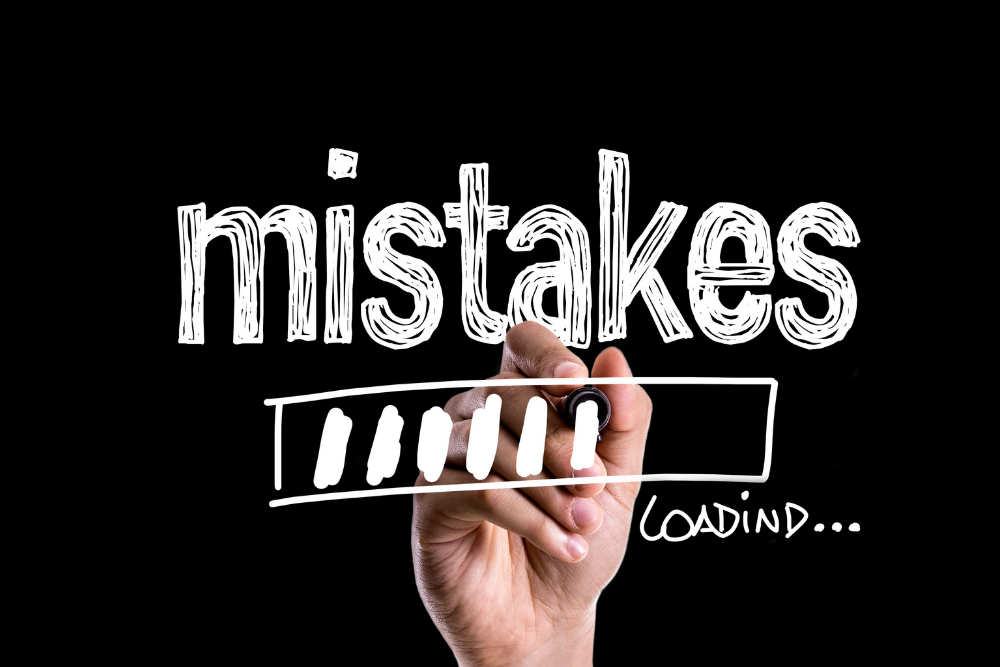The results of a Social Security Disability Insurance and/or SSI disability benefits claim can be life-changing. A successful claim can provide you with the benefits you need and deserve to be able to live with your disability. In contrast, being denied benefits can leave you constantly struggling. Because of this, it is incredibly important to avoid disability claim mistakes.
What does that mean?
Filing a disability claim can be a complex process, and claimants who attempt to file claims without hiring an attorney sometimes make mistakes that may reduce the past due benefits they may receive — or even cause their claim to be rejected entirely.
Hiring an attorney not only allows you to focus on your health, it can also prevent you from making common disability claim mistakes, such as the ones we cover below.
1. Receiving Insufficient Medical Care
Claimants commonly make the following mistakes with their medical care:
- Failure to see a doctor soon enough for their health conditions
- Not being specific with their doctor regarding their symptoms and how those symptoms limit their functioning
- Not seeing specialists or the right kinds of doctors to treat their specific condition(s)
- Failure to request opinions from their doctors regarding the ability to function in a work environment
Successfully qualifying for Social Security disability means meeting the Social Security Administration’s very specific legal requirements for proving disability.
Not only is it important to visit your various health care providers and receive treatment for your conditions, but you also need to have them comment on the specific issues that the SSA cares about. We can send out forms to your providers asking them to explain how your conditions affect your ability to function in competitive employment.
Often, medical professionals do not really understand how specific they need to be in their examinations and reports. In order for your medical records to lead to a successful SSD claim, it helps if they show that:
- The condition has lasted or is expected to last for more than one year, or to result in your death
- Your condition prevents you from doing the work you previously did, or from being able to do any other job (unless you win at Step 3 of the 5 Step Sequential Evaluation Process)
This is where a legal professional with experience in these types of cases can be invaluable.
An attorney can also work with your providers to complete a residual functional capacity (RFC) form, which may make the difference between winning or losing your claim.
Bottom line? Your attorney should know what specific information Social Security will focus on when reviewing your medical records, and that is invaluable.
2. Choosing the Incorrect Onset Date
Your “onset date” is the date when you can no longer work due to your medical condition. That seems pretty straightforward, but many people don’t really understand how to determine it.
For example, it’s fairly common for someone with a disability to attempt to continue working for some time before realizing that they can’t. Or to take some time off, then have “unsuccessful work attempts” where they return to work briefly before giving up again.
If you choose the wrong onset date, you may be denying yourself needed benefits — even before the Social Security Administration decides your claim. Every situation is different, of course, which is why it is so valuable to work with a knowledgeable Social Security disability attorney.
3. Waiting Too Long to Apply for SSD Benefits
Realizing that you can no longer work is often devastating, and it can be difficult to admit that you’re no longer able to do your job by filing a disability benefits claim.
However, if you fail to take timely action, you could lose your right to collect all the retroactive benefits to which you may be entitled prior to filing your claim for Social Security Disability Insurance Benefits and/or SSI disability benefits.
It’s also important to remember that filing a disability claim can be a time-consuming process, with SSA taking numerous months to make a decision. This means that you could go for a significant amount of time without income, and struggle to make ends meet.
Because of this, if and when your claim is finally approved, you want to be sure you’ve asked for all the benefits to which you may be entitled.
4. Waiting Too Long to Appeal a Claim Denial
Another common disability claim mistake is to assume that nothing can be done if a benefits claim is denied. However, this is simply not the case, and you have every right to appeal a decision.
If your initial claim is denied, you have 65 days to file a Request for Reconsideration. If you miss this deadline, you may be forced to file a new application for benefits, which could have negative legal consequences.
Also, many claimants simply get discouraged and give up; they do not appeal. Do not let this happen to you. As in life, perseverance is key!
Even if your Request for Reconsideration is denied, you have the right to seek further levels of appeal, including a hearing with an administrative law judge.
5. Not Knowing the Law
Most people assume that in order to qualify for Social Security Disability Insurance Benefits and/or SSI disability benefits, they must be completely unable to work, and are not allowed to collect income from any kind of work. But this isn’t necessarily true.
For example, if you are unable to work full-time but are still able to earn some side income, you may still be able to continue working, depending upon whether you are an employee or self-employed, and how much you are earning.
Your earnings, minus impairment-related work expenses (IRWEs), must not exceed the amount allowed and become Substantial Gainful Activity (SGA). For 2021, blind individuals may earn up to $2,190 per month, while non-blind individuals can make up to $1,310 per month. Furthermore, in some cases, even if you can perform some types of full-time work, you still may qualify for benefits! It’s all in the SSA’s Medical-Vocational Guidelines.
Clearly, filing a disability claim claim is complex, and can also be more nuanced than you might think. An attorney will know the governing statutes, regulations, and other laws covering these claims to help you recover the maximum benefits to which you may be entitled.
If you are interested in learning more or need help with your SSD benefits claim, contact Feingold Law.
Author:
Richard I. Feingold
Richard I. Feingold & Associates, P.C.
Personal Injury & Social Security Disability
Stay Connected:
Sign up for our newsletter
Like us on Facebook
Connect on LinkedIn
Follow us on Twitter

